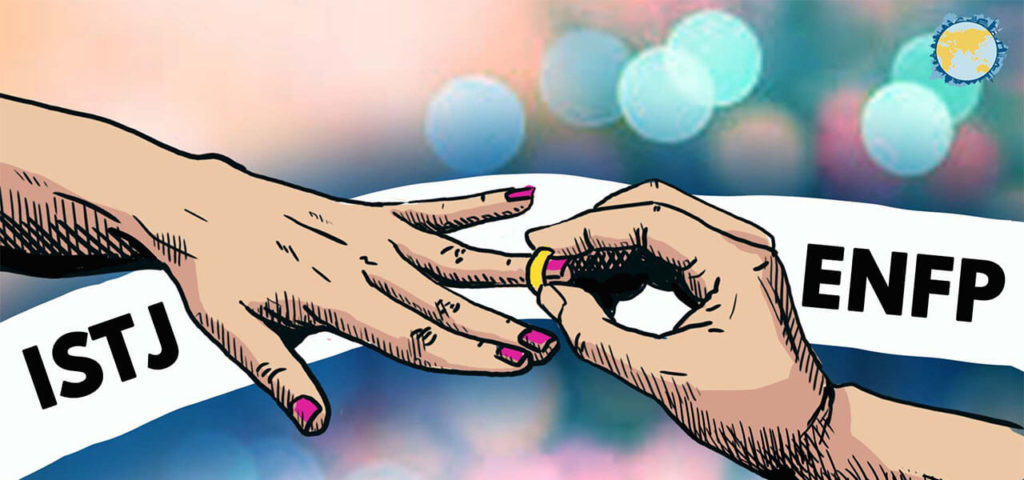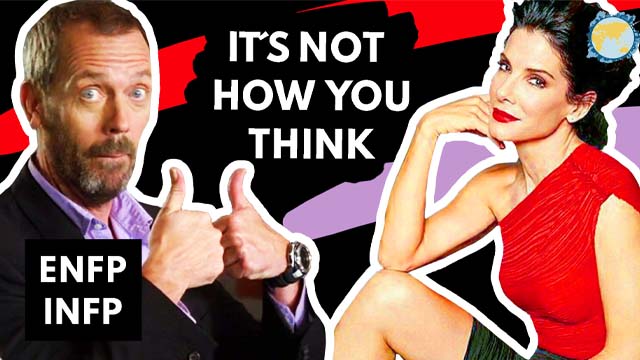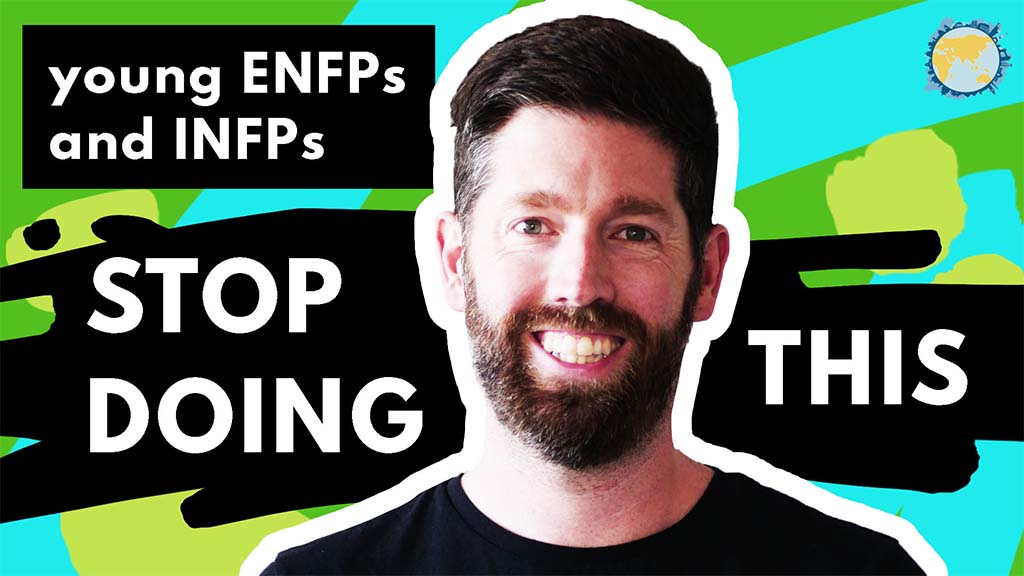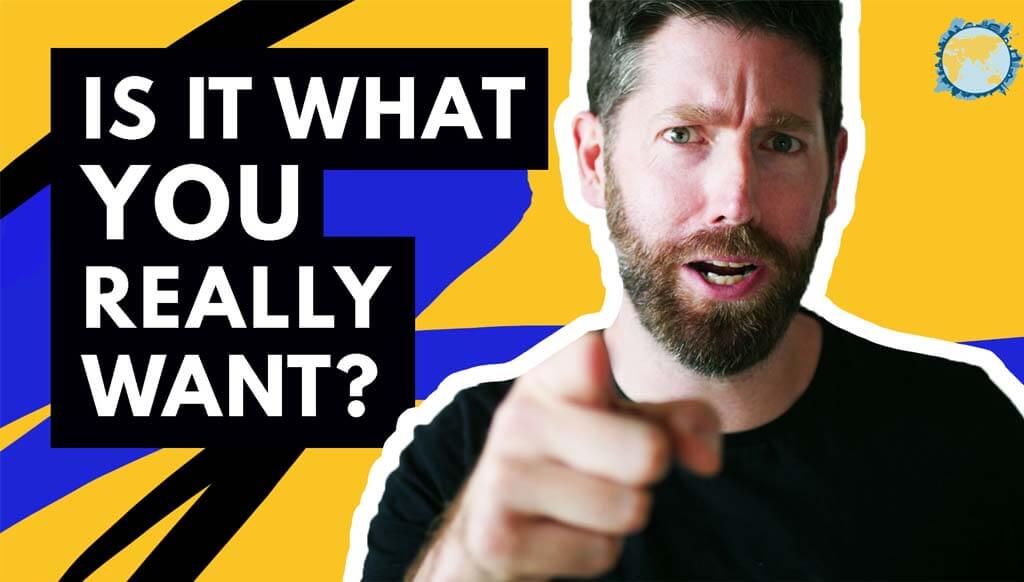A Perfect Routine for ENFPs and INFPs
Table of Contents

The questions about routines, how to be organized, and how to have a great routine come up a lot, especially from ENFP and INFPs.
I’ve been playing around with this for maybe a year, but I’ve come to the conclusion that there is no one good routine for ENFPs.
Now, I might regret that later if I discover the perfect routine, and try to share that with everyone, because I’ve said there’s no one good routine.
What I’ve realized is, ENFPs have such a high level of openness, we are drawn to new experiences, we like new challenges that it is not about creating the perfect routine. It is about having a new routine that we are excited about and interested in. That will keep us refocused.
Now, there are certain elements of a great routine.
How to stay engaged and be productive as an ENFP or INFP?
Having a Great Routine as an ENFP or INFP
#1 – Have Fixed Working Periods
So one of the first elements of having a great routine, or structure, to use is to have fixed working periods.
This can come out into play a few different ways.
One is start and end times to your day.
I always start by this time, I always end by this time.
This has a lot of benefits. When you have a limited time, you are much, much more likely to focus on what’s important. You instinctively start using the 80/20 rule to just stay focused and basically get things done.
This happens for a wealth of reasons, one of which is when you have some time pressure, you’ll actually have more dopamine produced in your brain to help you focus because of that little bit of stress.
So by actually giving yourself restrictions and making work a little bit more challenging, you’ll get this turbocharge from your brain which will help you then focus and get more done.
So if you’ve ever found that the night before a deadline, test, or something to do, you focus better and get things done, part of that is, of course, because you have to, so your procrastination, the little devil inside is like:
Alright, I’ll leave you alone. Tonight, I know you’ve got to get it done.
The other part is the pressure of needing to get it done actually changes your neurochemistry, which actually leads to then being able to focus and get things done.
Having a fixed start time is good because it helps regulate your sleep. You’re more likely to go to bed on time and consistently, which is really important for the ability to focus and to get more done.
And having an end time is great because of the pressure.
It also gives you something to look forward to. I’ll use more Spanish time – start at eleven, finish at seven. If you know that is your schedule, and that when you finish, you’re going to get to go see your friends or go to the beach or go just read a book or go play some video games, whatever it is you want to do, you’re more likely just to stay focused and get things done because there’s an ending to it.
When you’re always working and you’re always on, it’s really hard to apply yourself and stay really focused because why would you?
You’re kind of always working and this is something freelancers can fall into if they aren’t proactive about it. Always working, always on, and never fully on. Sort of being in this weird gray area of low intensity and always-on working.
So having the end time is helpful. It gives you a chance to disconnect and have something to look forward to.
And just these two things, setting a start point and an end point can have a dramatically positive effect on your mental state, your ability to focus, and ultimately, what you get done.
Click the subscribe button, Join my Youtube Channel – We’re almost at 50K!
#2 – Establish a Good Morning Routine
A few other things, perhaps as important, I would add to that. The first is early morning activities and how to be productive in the morning.
Are you waking up and checking your email often or reading the news?
Doing something like that tends to put you in a reactive state of mind.
You wake up, you’re looking at the news, and you’re thinking:
Oh, wow, this sucks. I don’t see the point of working today. Pretty sure we’re not gonna be around much longer. I guess I’m just gonna go and head over to Facebook and waste away my day.
If you’re checking your email in the morning, when you open up the email, you open up open loops and the same thing can be on social media as well.
Avoid news, social media, and email, even WhatsApp or text messages if you have a lot of trouble focusing.
Leave your phone when you go to sleep and have your phone on the airplane mode and leave it on the airplane mode until lunch.
So your whole morning I suggest be proactive, not getting any input from anyone else.
Think about it.
If you open up your email inbox, and you have even just two or three emails from people asking something:
Hey, Dan, where do you want to go for dinner? Is Friday night or Saturday night better for you? Let me know the time and the kind of food you want.
If you’re someone who’s a little more open-minded and someone who overthinks things a bit, like us ENFPs and INFPs, that question can burn a lot of brainpower early in the morning.
You’re thinking:
Well, okay, what time, what day? Do I want to work late Friday? What else do I have going on?
See, if you haven’t set a schedule for when you end work, more things to think about, right?
Well, I’d be working Friday night, I’d be working Saturday.
You’ve got to think about what kind of food, where you might be, maybe if you’re going with your partner – what’s your partner’s schedule?
A simple social question can get your brain spinning.
If you have a work-related email, it can be even worse.
You get an email from a client asking some question you’ve never thought about. They’re asking about the possibility to change how you’re approaching a project. Once you read that question, you can’t stop thinking about it. At least for most of us can’t, right?
It’s going to play in your head and you’re going to want to answer it and it just burns brainpower.
So if there is no reason to check your email in the morning, which there shouldn’t be if you’re running your business properly, don’t check it. It’s not going to serve you.
The best time in an absolutely perfect world to check your email and to get back to people is actually the very end of the day.
One of the most productive periods of my life was when I was living in Spain before, many years ago.
I would only check email and get social media messages back to people and things like that at the end of the day between 7and 7:30.
The office I worked out of closed at 7:30, so this created a great time pressure to respond to people quickly.
#3 – Think and Communicate Clearly
If you’re an ENFP or INFP and you have hours to check your email, you will read people’s long-ass emails. You will think through every sentence. You will ponder 20 different responses. And the next thing you know, you’ve done nothing all day.
Whereas, if you give yourself a very short period of time to respond to emails, you will get to the bottom of it, you will send a clear response. and it will be done.
It will be out of your head and you can move forward with important work.
You’ll notice this if you email with CEOs or with entrepreneurs, with busy people in general, you tend to get 1-3 sentence replies. That’s just how they operate because there’s no way they would be in that position if they wrote you 10-paragraph responses. It just doesn’t serve either party in that communication.
And this is going off in a bit of a tangent, but I think it’s an important lesson, especially if you’re younger, I would say 30 or younger, but maybe even 40 or younger.
There’s a good chance you think that email is a substitute for real communication.
So you send very long communication to people, sometimes people that you view as important, or really claim to value their time.
This ENFP I was interviewing for my ENFP Unleashed program has traveled to every country on Earth before he turned 30 and had companies pay for it, had it all sponsored and had a travel show made about it.
We were talking about this, about how he got that sponsorship and one of the themes was:
Be to the point. Value people’s time.
If you’re emailing a CEO, don’t send them 20 paragraphs on your life story.
Number one, they won’t have time to read it. And number two, you’re disrespecting them.
If you want to communicate with people, you need to think really clearly. Having those clear thoughts in your own head will lead to clear communication.
If you’re sending people long paragraph emails, guess what?
They’re going to take a long time to respond to you, which will delay everything.
If you’re emailing with clients, and you take four days to write the email, because you need to make it really long and then they take four days to respond because they’re thinking:
Ah, I don’t have time to read this right now.
Everything is going to go slow in your life. Your projects will move very slowly and they’ll be delayed just because of communication.
The other thing is, you’ll just spend a lot of time on it. It will just end up eating your time up.
And of course, the people responding will respond late.
Because you probably have this feeling, too – if someone sends you a long email, it feels weird to just respond like one or two sentences.
I will do that now because I’ve just learned to do that. So I’ll get an eight-paragraph email and I’ll send back two sentences.
I’m sure some people feel maybe disrespected by that.
There’s a feeling if you send someone a long letter, they should send you a long letter back.
If you’re doing that, you’re creating bad communication patterns with the people you deal with, which is going to eat up a ton of your time and energy, and it’s not going to serve you.
#4 – Check Your Email in Fixed Time Periods
One of the best solutions for this is to just do email once or twice a day in fixed time periods, towards the end of the day, or right before lunch, or both.
Because if lunch is coming up, you have a fixed time for lunch and you’re hungry. You’re going to speed through your emails and get them done.
Ideally, and I can’t claim I’ve been following this perfectly, you also mix in what’s called the Touch It Once rule.
So you check email once or twice a day and your rule is that if you open an email, if you look at it, that you respond right away, or you delete it. You don’t open emails and read them and then not respond because that’s when you forget about it or you let it play in your head all day.
You just waste a lot of mental resources on that, those which would be much better put to creating assets for your life and business.
#5 – Come Up With Your Time Blocks
The last part I’ll get into in terms of a perfect ENFP or INFP routine and structure is time blocks.
Have a fixed period of time for writing and a fixed period of time for technical stuff, like building your website, or doing admin work.
Different activities tend to use different parts of our brain and tend to work better at different times of the day.
It’s a very different headspace to sit down and write a first draft of something rather creative than it is to catch up on paperwork or work on your website.
Having your time broken into these different areas I think helps habitualize your mind to getting into that right headspace.
If you already know there’s a time of day where you’re more creative, then probably match that with your creative work.
I do also think if you stick to something for a little while, your brain will somewhat adjust. It’s like your mind will adjust to sleeping if you sleep at different times, you may not perfectly adapt, but you do adapt.
Set up time blocks for the activities that require different ways of thinking.
This is also an opportunity to think strategically about what’s important for you in your life.
Thinking about what’s important to you, what you want to get done, and then building your time blocks around that.
So you figure out:
- What are my bigger goals?
- What are the things I’m trying to achieve over the next three months?
- To achieve that, how should I be spending my time?
From there you can work out, let’s say, 90-minute blocks of time on these different areas that are important to you and then plan those out within that schedule.
So you have your daily start time and end time. You have a few rules such as checking email, or not checking email, perhaps better said. And then you figure out what are the blocks of time that you want to fit in in your schedule that will focus you on specific types of work.
You may also like How To Become Disciplined as an ENFP or INFP – learn the easiest way to become disciplined if you are an ENFP or an INFP.
Is Routine Really So Important For ENFPs and INFPs?
As I’ve said at the beginning, for us -NFP types, having a perfect routine that we will use for the rest of our lives probably isn’t going to happen.
Many things change and I think we like the novelty of a new routine as well, but of course, we should match it to our circumstance, match it to what’s important for us.
But that does not mean having a routine and a structure is not important. In fact, I think it is extremely important for us to implement this.
We had a coaching call last week within our Dreamers and Doers community.
It was about a state of mind and your mood, attitude and energy during chaotic times. And then we ended up having a two-hour conversation, a group hangout, about six of us on the call.
One of the themes that came up was morning routines and just how important that is. And most people had some form of a morning routine, at the very least, and usually more structure beyond that, but at the very least a morning routine that was planned out and structured and we just talked about how important that really is to have.
If you’re hesitant to go all in and really structure a full day, then start with the morning routine. Start with something.
There are a couple of things you can put into place to help yourself and then maybe you’ll see the value of that, you’ll see how much better you feel and how much more you can get done in perhaps less time, which is important.
And then maybe once you see those results, you’ll have the motivation to apply more and more routine or structure within the work day or work week for yourself and so ultimately create a great work routine for yourself.
If you are interested in joining us on future Dreamers and Doers calls, we have a call every Friday.
This is a community of awesome people from around the world, a lot of which are ENFPs and INFPs, but not exclusively,
We tend to be people interested in psychology, in not always but often in entrepreneurship or at least learning about the possibility of working for yourself. A lot of artists, creative people as well – generally, a very cool, fun, supportive group.
You can find more information clicking here and decide what is the right level for you to contribute be a part of the community, as well as supporting the community and my team here with everything we’re making to make the world a little bit better.





Hello Dan,
I’ve just recently discovered the world of personality types and I was pretty excited to see and learn how accurate this personality fits to me. I am also a proud ENFP and want to work on my weaknesses, especially my lack of time management and routine.
I really want to implement stretching myself and caring for my body on a daily basis and I really think this text and your inspiration did something for me and hopefully will continue this trend.
Keep up the good work.
Best Regards,
Jan Friedrich